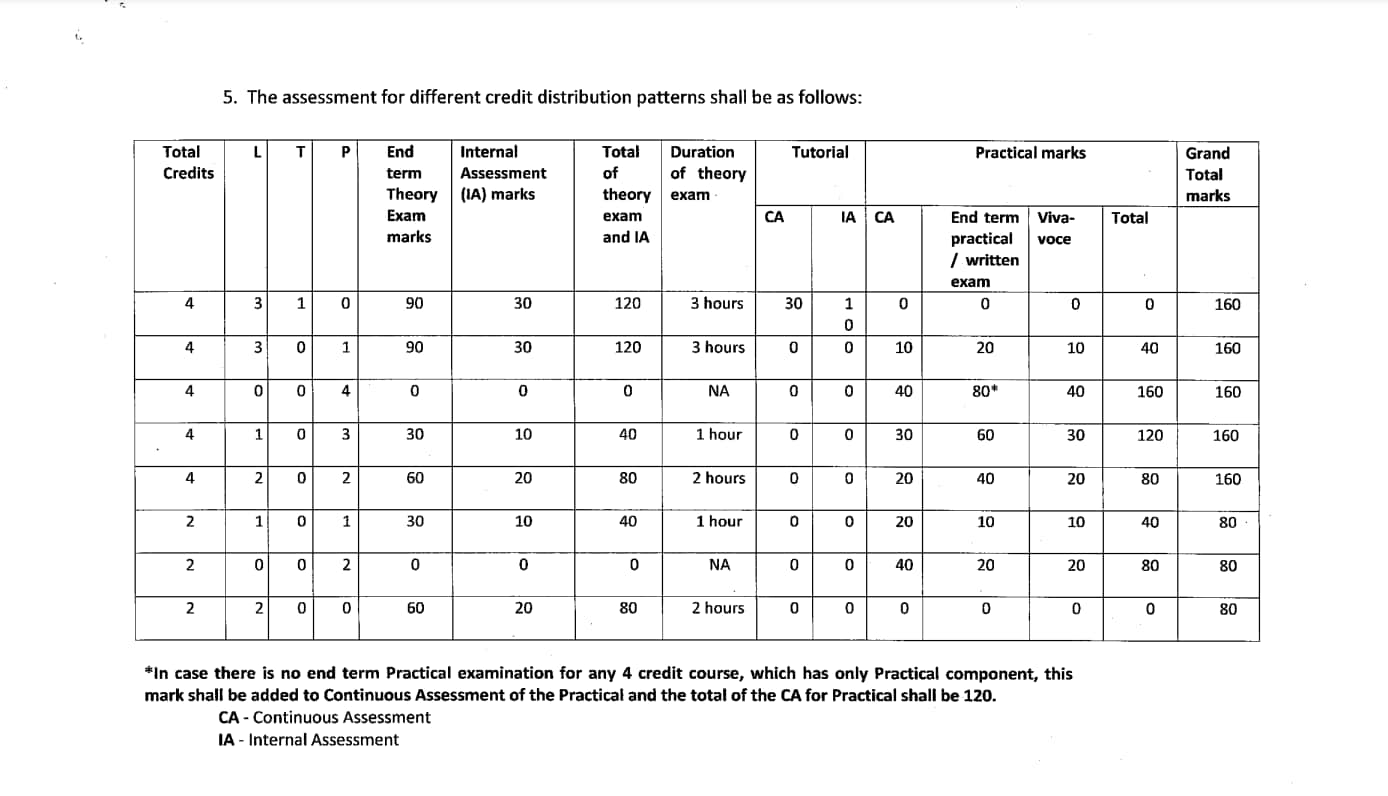DU recommends tutorial components, assessment pattern for courses under UGCF
Vagisha Kaushik | January 21, 2023 | 07:20 PM IST | 2 mins read
Delhi University NEP cell recommended if a student fails in continuous mode of assessment, they will have to take readmission in the course.
Colleges/Universites Accepting CUET Score
Download list of Colleges/ Universities Accpeting CUET/CUCET Score with Cut-OFFs
Download Now
NEW DELHI: Delhi University’s National Education Policy (NEP) cell has recommended the components of tutorials, continuous mode of assessment, internal assessment, minimum attendance etc. for setting up the assessment pattern for courses under the Undergraduate Curriculum Framework (UGCF). The recommendations were made in a meeting held on October 14, 2022 between DU NEP cell and dean of examinations and OSD exams “in order to arrive at the assessment pattern that can be adopted for the purpose of assessment of courses that have been approved by the competent authorities under the UGCF 2022.” This recommendation is part of the agenda for the DU Academic Council meeting scheduled for January 25.
Latest: Check DU PG Seat Allotment 2025 | Vacant Seats for Spot Round 4
DU PG Spot Round 2025: First Cutoff | Second Cutoff | Third Cutoff
DU PG 2025: Third Cutoff | Second Cutoff | First Cutoff
Don't Miss: NIRF DU Colleges Ranking
According to the recommendations of the university, the minimum attendance required for continuous mode of assessment is 60 percent and if a student fails in this mode of assessment, he or she will have to take re-admission.
Also Read | DU colleges in ‘academic chaos’ due to new policies, curriculum, admission delay
Tutorials
“In any course, where 1 credit is attributed to ‘tutorial’, an objective assessment process has to be developed as a credit earned by a student in a course will eventually lead to its deposition in the Academic Bank of Credit of such student. Therefore, it is imperative that each credit earned by student is adequately assessed and recorded carefully,” recommended DU.
The university listed down these components of tutorial which can be picked by a student in consultation with the teacher
- Literature review
- Book review
- Movie review
- Project activity (group)
- Research cum presentation
- Creative writing or paper writing
- Group discussion
- Problem solving exercises
- Any creative production (can be done in a group)
Innovative product - Any other scholastic work related to application of conceptual understanding of a subject
Also Read | Delhi University: What the new DU curriculum looks like and why it is being opposed
Internal assessment
DU said that the activities will be assessed through a continuous assessment carrying 30 marks and internal assessment carrying 10 marks and will lead to a grade. The internal assessment will consist of marks secured in class tests, assignments, presentations and attendance.
“It should be clearly indicated that the theory examination and internal assessment shall be a cumulative assessment of the teaching-learning done in the theory as well as tutorial classes,” the university recommended.
Also Read | ‘Value-addition courses will discourage critical thinking’: DU AC members
DU informed that the practical marks for 4-credit courses will include continuous evaluation (25%), end-term practical exam (50%) and viva-voce (25%) whereas those for 2-credit courses will have continuous evaluation (50%), end-term practical exam (25%) and viva-voce (25%).
Credit-wise assessment pattern
 DU NEP cell recommendations on assessment for credit distribution pattern
DU NEP cell recommendations on assessment for credit distribution pattern
The university recommended an LTP structure and said, “the variance of the total marks in various combinations of LTP structure shall be aligned with the help of “weighted average” calculated through an appropriately devised formula for conversion of marks to grades.”
Follow us for the latest education news on colleges and universities, admission, courses, exams, research, education policies, study abroad and more..
To get in touch, write to us at news@careers360.com.